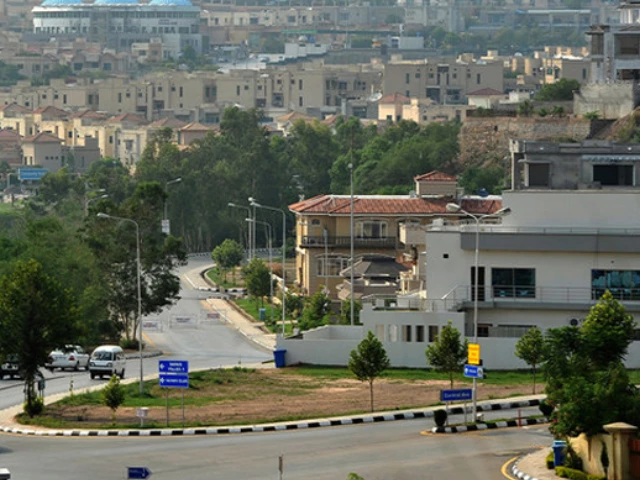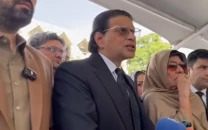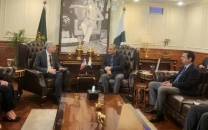Pindi's growth outpaces governance
Overlapping mandates and stalled reforms leave city without guiding framework

Despite the population of Rawalpindi District surpassing 5.5 million, the city still lacks a comprehensive master plan to guide its present and future urban development. The absence of such a framework — even in 2025 — underscores a long-standing gap in strategic urban governance and reflects years of administrative indecision.
The two previous master plans, prepared in 1968-69 and 1991-2016, were never implemented due to procedural shortcomings and institutional inefficiencies. A third plan, approved in 2020 under specific Terms of Reference (ToRs), was similarly suspended midway. Meanwhile, the Rawalpindi Development Authority (RDA) has yet to finalise the Regional Development Plan for the district's four tehsils.
The lack of a forward-looking master plan in one of Punjab's most rapidly expanding districts remains a matter of public concern and reflects poorly on successive provincial governments and local administrative bodies. Urban planners observe that had a consistent 20- or 30-year planning process been maintained, Rawalpindi would not now be contending with acute shortages of basic amenities such as water, sanitation, housing, healthcare, and transport infrastructure.
Under Section 7 of the Development of Cities Act 1976, RDA is legally mandated to undertake and maintain comprehensive development planning for the city. To this end, it prepared detailed ToRs for the Master Plan for Rawalpindi 2020-2045, vetted by the Housing, Urban Development and Public Health Engineering (HUD&PHE) Department. The proposal received formal approval from the RDA Governing Body on 30 July 2019, and after a transparent procurement process in accordance with PPRA Rules 2014, Mott MacDonald was selected as consultant in August 2020.
However, before the agreement could be signed, the Planning and Development Department issued directions (via letter dated July 21, 2020) instructing development authorities to coordinate with the Punjab Intermediate Cities Improvement and Investment Programme (PICIIP) under the Local Government and Community Development (LG&CD) Department for integrated urban planning.
Upon review, RDA found that the ToRs of PICIIP were nearly identical to those of its own master plan - yet the Authority had not been consulted or included in the PICIIP framework. Concerned about duplication of scope and potential wastage of public funds, RDA sought clarification from the HUD&PHE Department through a formal letter dated September 15, 2020, requesting guidance on which agency — RDA or PICIIP — had the rightful mandate to prepare Rawalpindi's master plan.
No response was received, and in a subsequent meeting chaired by the Commissioner of the Rawalpindi Division, it was decided that the RDA would suspend work on the master plan and instead develop a Regional Development Plan for the Tehsils of Rawalpindi District (excluding Rawalpindi Tehsil), where PICIIP was already engaged.
Accordingly, after a fresh selection process, Mott MacDonald was again appointed as consultant. The contract, valued at Rs49.68 million, was awarded on December 16, 2020, and signed on December 24, 2020, with a completion timeline of twelve months.
The consultant completed inception, stakeholder engagement, and land-use mapping, submitting key deliverables including the Inception Report (February 2021), Visioning Report (June 2021), and District Land Use Map (August 2021, revised August 2022). Despite reminders, technical feedback from tehsil administrations remains pending, delaying the plan's finalisation.
Meetings held between June and November 2021 revealed that PICIIP's mandate was confined to four urban sectors — water supply, sewerage, solid waste management, and urban transport — and did not cover the broader urban, environmental, housing, or zoning components that define a full-fledged master plan. This has effectively left Rawalpindi without a holistic development framework since 2016.






















COMMENTS
Comments are moderated and generally will be posted if they are on-topic and not abusive.
For more information, please see our Comments FAQ